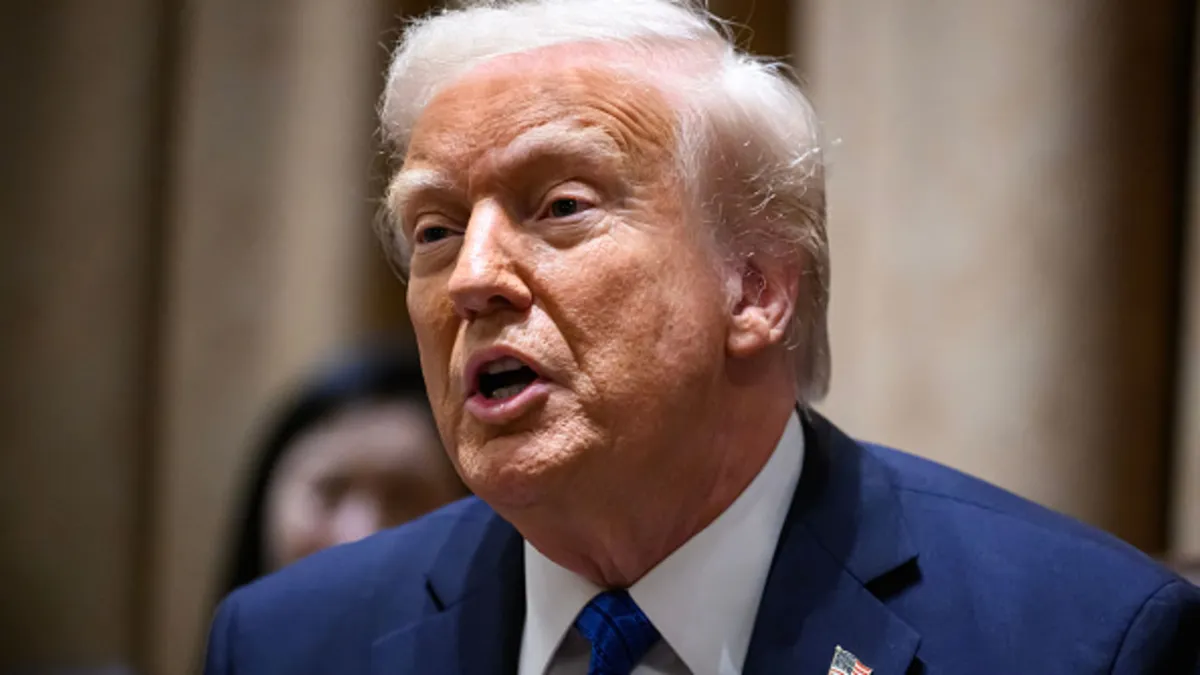
In a recent interview with Newsmax, President Donald Trump indicated that tariffs are likely to be less stringent than reciprocated measures as the looming April 2 tariff deadline approaches. Trump stated, “I’ll probably be more lenient than reciprocal, because if I was reciprocal, that would be very tough for people.” This comment sheds light on the administration's evolving stance on tariffs, which have significant implications for the U.S. economy.
During the interview, Trump acknowledged that there are some exceptions to his tariff strategy, emphasizing that it remains an ongoing discussion. “I know there are some exceptions, and it’s an ongoing discussion, but not too many, not too many exceptions,” he remarked. This statement suggests that while the administration is open to adjustments, the overall framework of tariffs will likely remain intact.
Trump's comments come at a time when investor sentiment is notably fragile. Concerns are mounting that a more aggressive approach to tariffs could negatively impact both consumer and corporate confidence, potentially curbing growth in the U.S. economy. As the trade landscape shifts, many are watching closely to see how these decisions will influence market conditions.
On the same day of Trump's interview, the Conference Board released a report revealing that its measure of consumer expectations regarding business conditions, income, and labor has plummeted to a 12-year low. This decline signals growing uncertainty among consumers, which could have far-reaching effects on spending and investment.
The ongoing tariff pressures have also taken a toll on the stock market. Recently, the S&P 500 has struggled, recording a 3% drop over the past month. The benchmark index even dipped into correction territory, briefly trading more than 10% below its record high set in February. This volatility highlights the potential risks associated with the administration's tariff policies and their impacts on market stability.
As the April 2 deadline approaches, stakeholders across the economic spectrum will continue to monitor President Trump's tariff strategy and its implications for the future of the U.S. economy.